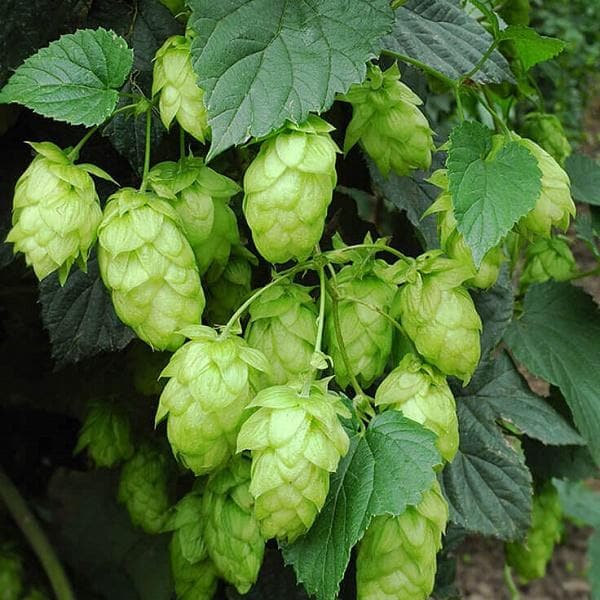
Hops - Plant
(MRP Inclusive of all taxes)
- Shipping ₹79 for entire order
- Dispatch in 7 days
- Country of origin: India

(MRP Inclusive of all taxes)
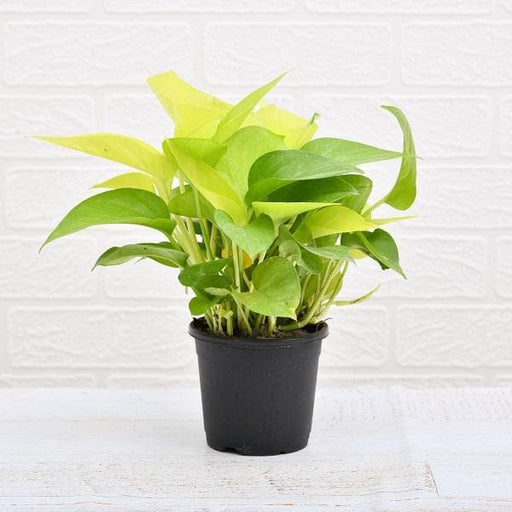 Save 29%
Save 29%
Air Purifier Money Plant with Pot The Air Purifier Money Plant, also known as Pothos or Epipremnum aureum, is a stunning indoor plant that...
View full details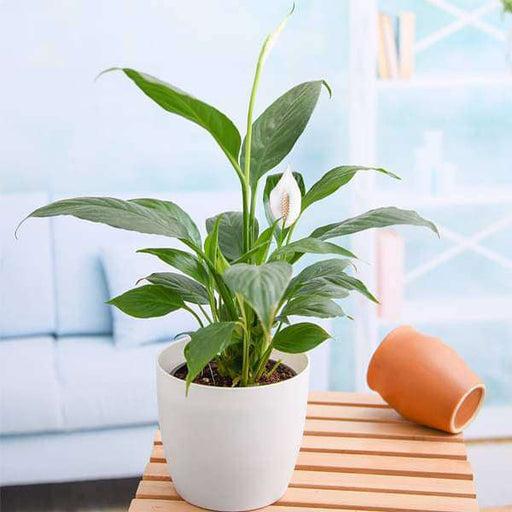
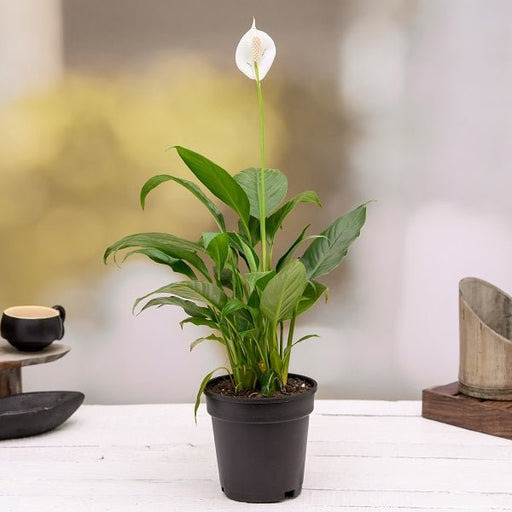 Save up to 15%
Save up to 15%
Peace Lily, Spathiphyllum - Plant The Peace Lily, scientifically known as Spathiphyllum, is a stunning houseplant celebrated for its elegant white...
View full details
 Save 25%
Save 25%
Jasminum sambac, Mogra, Arabian Jasmine - Plant Jasminum sambac, commonly known as Mogra or Arabian Jasmine, is a fragrant flowering plant...
View full details
 Save 18%
Save 18%
Combo Constituents Includes the Parijat Tree (Night-Flowering Jasmine), a culturally significant plant with fragrant flowers. Description The Pari...
View full details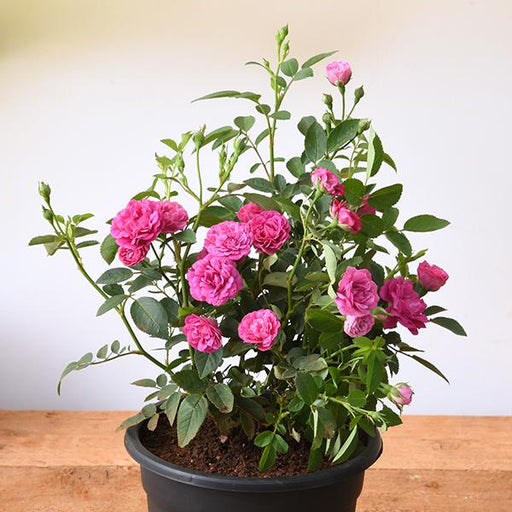
 Save 25%
Save 25%
Miniature Rose, Button Rose (Any Color) - Plant The Miniature Rose, also known as the Button Rose, is a charming and compact flowering plant that ...
View full details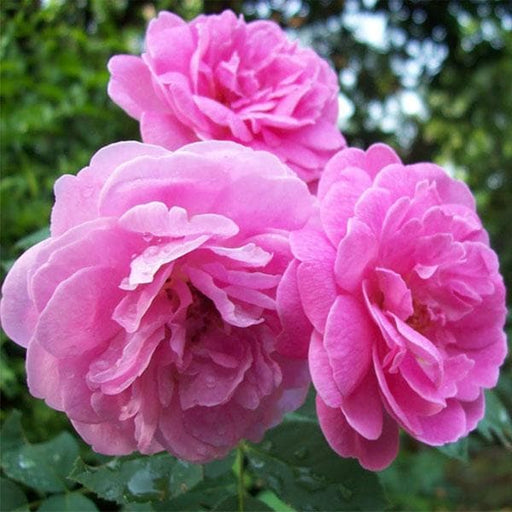 Save 25%
Save 25%
Damascus Rose, Scented Rose (Any Color) - Plant The Damascus Rose, also known as Rosa damascena, is a timeless symbol of beauty and romanc...
View full details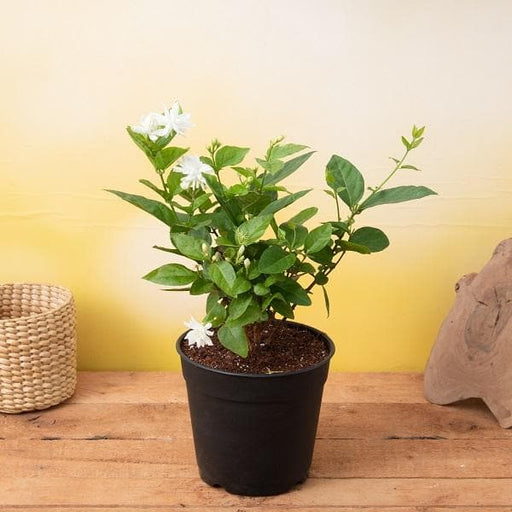
 Save 17%
Save 17%
Beautiful Fragrant Mogra, Arabian Jasmine Plant with Pot The Beautiful Fragrant Mogra, also known as Arabian Jasmine (Jasminum sambac), is...
View full details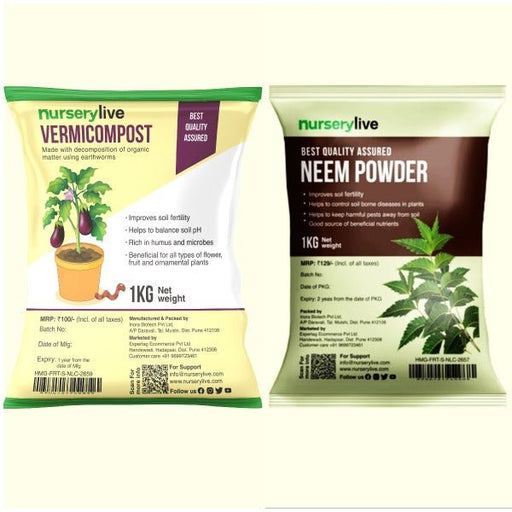 Save 15%
Save 15%
Pack of Vermicompost and Neem Cake for House Plants Transform your indoor garden with our premium Pack of Vermicompost and Neem Cake, spec...
View full details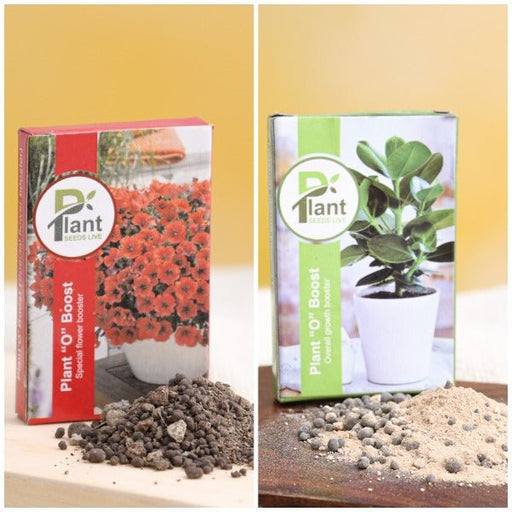
Pack of Plant Growth and Flower Boosters Unlock the full potential of your garden with our Pack of Plant Growth and Flower Boosters! This ...
View full details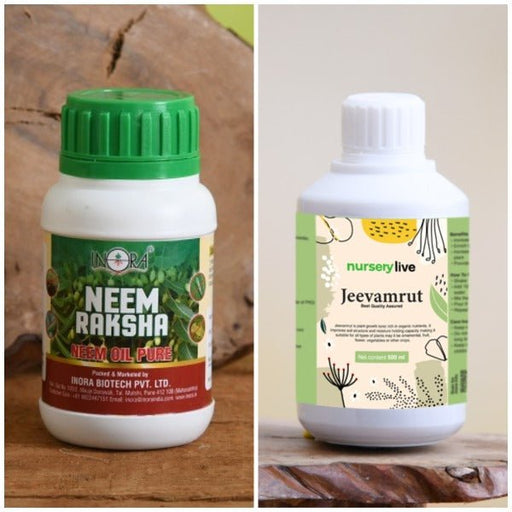 Save 38%
Save 38%
Combo of Jeevamrut and Neem Raksha for Easy Growth and Protection of Houseplants Transform your indoor garden with our exclusive combo of ...
View full details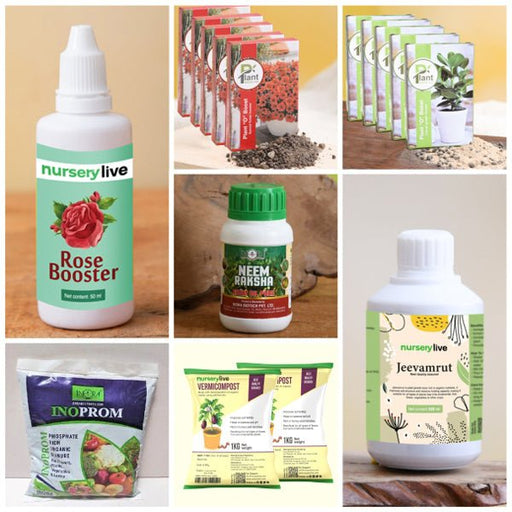 Save 22%
Save 22%
Plant Nutrients Kit (Pack of 16) for a Healthy Garden Transform your garden into a lush paradise with our Plant Nutrients Kit, featuring 1...
View full details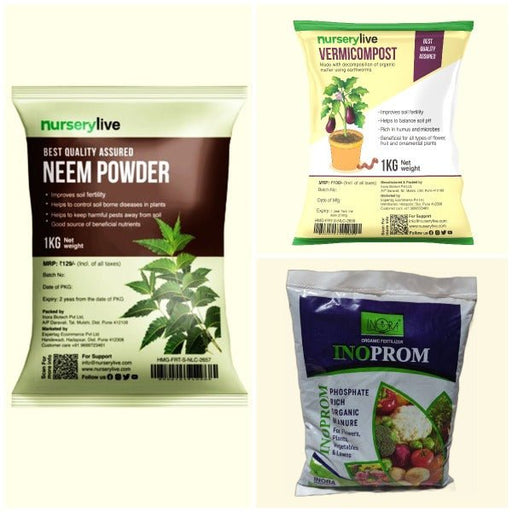 Save 16%
Save 16%
Combo of Top Plant Fertilizers Elevate your gardening game with our exclusive Combo of Top Plant Fertilizers, featuring two bags of premiu...
View full details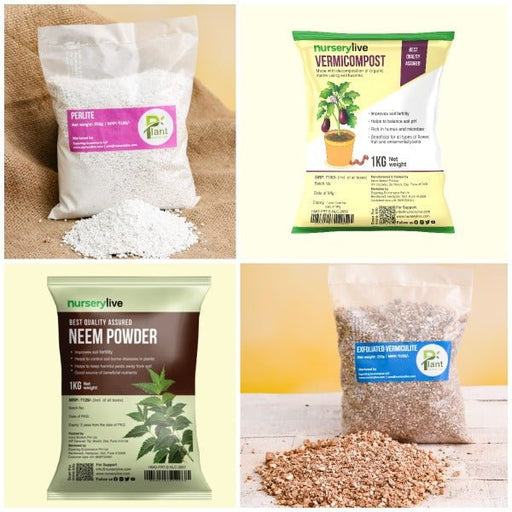 Save 24%
Save 24%
Pack of 4 Additives to Make Soil Healthy and Nutrient Rich Transform your garden into a thriving ecosystem with our Pack of 4 Additives de...
View full details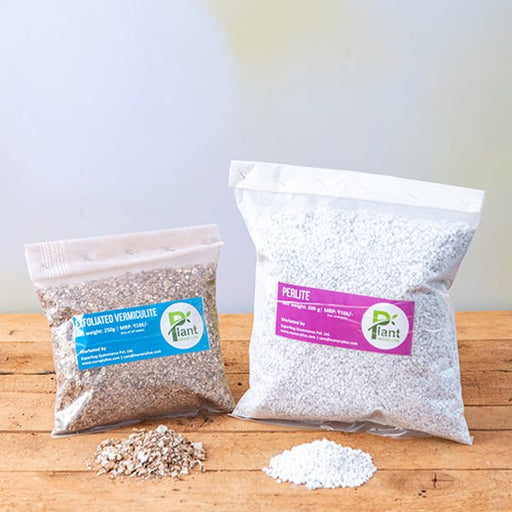 Save 30%
Save 30%
Transform your gardening experience with our premium Combo of Perlite and Vermiculite. This unique blend is designed to enhance soil aeration and ...
View full details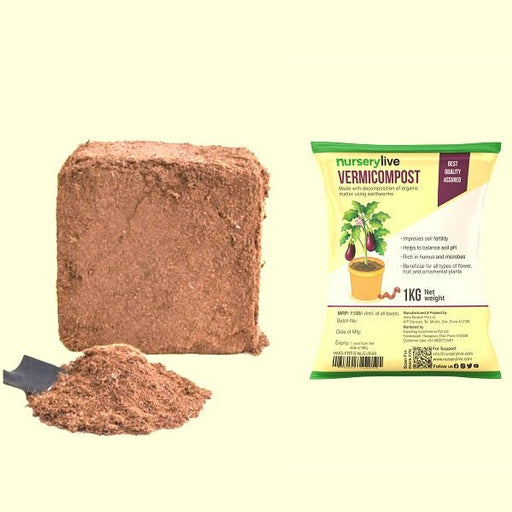 Save 27%
Save 27%
Combo of 2 Vermicompost and Cocopeat - Enrich Your Soil Naturally! Transform your garden into a thriving ecosystem with our Combo of 2 Ver...
View full details
 Save 35%
Save 35%
Best 6 Plants for Perfect Indoor Garden Transform your living space into a lush oasis with our curated collection of the Best 6 Plants for a...
View full details
 Save up to 50%
Save up to 50%
Mini Succulent Garden Pack Transform your space with our Mini Succulent Garden Pack, featuring a delightful collection of 4 any variety beautiful s...
View full details
 Save 30%
Save 30%
5 Best Fragrant Plants Transform your garden or indoor space into a fragrant paradise with our curated selection of the 5 Best Fragrant Plants. Th...
View full details
 Save 24%
Save 24%
Set of 2 Bonsai Looking Grafted Adeniums Transform your indoor or outdoor space with our exquisite Set of 2 Bonsai Looking Grafted Adenium...
View full details Save 45%
Save 45%
Top 4 Die Hard Succulents Pack Transform your indoor or outdoor space with our Top 4 Die Hard Succulents Pack, featuring a curated selecti...
View full details
 Save 30%
Save 30%
5 Best Indoor Plants Pack Transform your living space into a lush oasis with our '5 Best Indoor Plants Pack.' This carefully curated collection fe...
View full details
 Save 25%
Save 25%
Set of 4 Evergreen Air Purifier Plant Pack Transform your indoor space into a lush, green oasis with our Set of 4 Evergreen Air Purifier Pla...
View full details| SrNo | Item Name |
|---|---|
| 1 | Hops - Plant |
Hops (Humulus lupulus) are climbing perennial plants known for their unique flowers, which are essential in the brewing of beer. These green, cone-shaped flowers impart bitterness, flavor, and aroma to beer, making them a crucial ingredient in the brewing process. Beyond their culinary uses, hops are also valued for their medicinal properties, including their ability to promote relaxation and improve sleep quality.
What makes hops special is their complex chemistry, which includes over 200 compounds that contribute to the diverse flavors and aromas in beer. Hops are also a sustainable crop, requiring less water than many other agricultural plants, making them an environmentally friendly choice for farmers. Their ability to grow rapidly and cover structures makes them an excellent choice for vertical gardening.
One of the standout features of hops is their natural pest-repellent properties, which can help protect other plants in your garden. Additionally, hops are dioecious, meaning they have separate male and female plants, with only the female plants producing the coveted hop cones.
Hops are a sustainable crop that can improve soil health and biodiversity. Their deep root systems help prevent soil erosion, and they can be grown in a variety of climates, making them adaptable to changing environmental conditions. By choosing to grow hops, you contribute to a more sustainable agricultural practice.
When it comes to hops, variety is the spice of life! From Cascade to Citra, each hop variety brings its own unique flavor profile to the brewing party. Think of them as the quirky characters in a sitcom—some are bitter, some are fruity, and others are downright floral. Choosing the right variety can make or break your brew, so get to know your hops like you know your favorite TV show.
Hops are like divas; they require the perfect conditions to thrive. They love well-drained soil, plenty of sunlight, and a good amount of water—just like a thirsty actor on a hot set. If you want your hops to flourish, make sure they have a cozy spot in your garden that meets their high-maintenance needs.
Harvesting hops is like a treasure hunt, but instead of gold, you’re after those luscious green cones. Timing is everything; pick them too early, and they’ll be bitter, too late, and they’ll be sad and wilted. It’s a delicate dance that requires a keen eye and a bit of luck.
The brewing process is where the magic happens, and hops are the secret ingredient that turns water into liquid gold. They’re added at various stages to impart bitterness, flavor, and aroma. Think of hops as the spice rack of brewing—without them, you’re just boiling water.
Hops aren’t just for brewing; they come with a side of health benefits too! Packed with antioxidants and anti-inflammatory properties, these little green cones can help you unwind after a long day. So, while you’re enjoying that cold brew, remember you’re also doing your body a favor.
Just like any good drama, hops have their fair share of villains. Pests and diseases can wreak havoc on your precious plants, turning your garden into a battleground. From aphids to powdery mildew, knowing your enemies is half the battle.
Craft beer is the hipster of the beverage world, and hops are its best friend. They’re the reason your IPA is bursting with flavor and aroma. Craft brewers are like mad scientists, experimenting with different hop combinations to create the next big thing.
Different beer styles call for different hops, much like how a romantic comedy needs a charming lead. IPAs, stouts, and lagers all have their own hop preferences, and understanding these relationships can elevate your brewing game.
Proper hops storage is crucial for maintaining freshness, much like keeping your favorite snacks out of reach from sneaky hands. Hops should be stored in a cool, dark place, preferably vacuum-sealed, to keep them from losing their zing.
In a world where sustainability is key, hops are stepping up to the plate. Many growers are adopting eco-friendly practices, ensuring that your favorite brews are not just delicious but also kind to Mother Earth.
Homebrewing is like cooking at home; it’s all about experimenting and having fun. Hops are the secret ingredient that can take your homebrew from “meh” to “wow!” With a little creativity and the right hops, you can craft a beer that’s uniquely yours.
Pairing hops with food is an art form, much like finding the perfect outfit for a first date. The right hop-forward beer can elevate your meal, enhancing flavors and creating a culinary experience that’s simply unforgettable.
Hops are the flower cones of the hop plant, Humulus lupulus, and they’re the secret ingredient that gives beer its delightful bitterness and aroma. Think of them as the spice rack of the brewing world, adding flavor and acting as a natural preservative. Without hops, beer would be a bland, sad beverage!
Hops are climbers by nature, reaching for the sky like an overambitious vine. They thrive in well-drained soil and need plenty of sunlight, water, and a sturdy trellis to support their lofty aspirations. With a little love and care, these green beauties can grow up to 20 feet tall, making them the tallest plants in your garden!
There’s a hop for every beer lover! From the citrusy Cascade to the earthy Saaz, hops come in various flavors and aromas. Each type brings its own unique character to the brew, making it a playground for brewers. So whether you like it fruity, floral, or spicy, there’s a hop that’s just your type!
Hops are the life of the brewing party! They’re added at different stages of the brewing process to impart bitterness, flavor, and aroma. Early additions provide bitterness, while late additions and dry hopping bring out those delightful aromas. It’s like a dance party in your brew kettle, with hops leading the way!
Dry hopping is the cool kid on the block! It’s the process of adding hops to beer after fermentation, allowing those aromatic oils to shine without adding bitterness. This technique gives your brew a fresh, hoppy aroma that’ll make your taste buds do a happy dance. It’s like a hop party in a bottle!
Absolutely! Growing hops at home is like having your own mini brewery in the backyard. With a sunny spot, a sturdy trellis, and some patience, you can cultivate your own hop plants. Just remember, they’re like teenagers—needing space to grow and a little attention to thrive!
Hops aren’t just for brewing; they come with some surprising health perks! They’re known for their calming properties, helping to reduce anxiety and promote sleep. Plus, they’re packed with antioxidants. So, while you enjoy your hoppy brew, you can feel a little virtuous—cheers to that!
Storing hops is like keeping your favorite snacks safe from hungry friends. Keep them in a cool, dark place, preferably vacuum-sealed or in an airtight container. This way, they’ll maintain their freshness and potency, ready to unleash their magic when it’s time to brew. No one likes stale hops!
Hops have been around longer than your great-great-grandparents! First used in brewing in the 9th century, they quickly became the go-to ingredient for flavoring beer. Before hops, brewers relied on a mix of herbs and spices, but hops stole the show, becoming the star of the brewing world. Talk about a hop revolution!
Hops and marijuana are like distant cousins at a family reunion—related but living very different lives. Both belong to the Cannabaceae family, but hops are all about brewing, while marijuana is more focused on relaxation. So, while they share a family tree, their paths in life are quite different!
Hops have their fair share of pests, like aphids and spider mites, who think they’re invited to the party. These little critters can wreak havoc on your plants, so it’s essential to keep an eye out. Regular inspections and natural predators can help keep your hop garden pest-free and thriving!
Give them a squeeze—if they feel dry and papery, it’s showtime! Get ready to brew up some hoppy goodness!